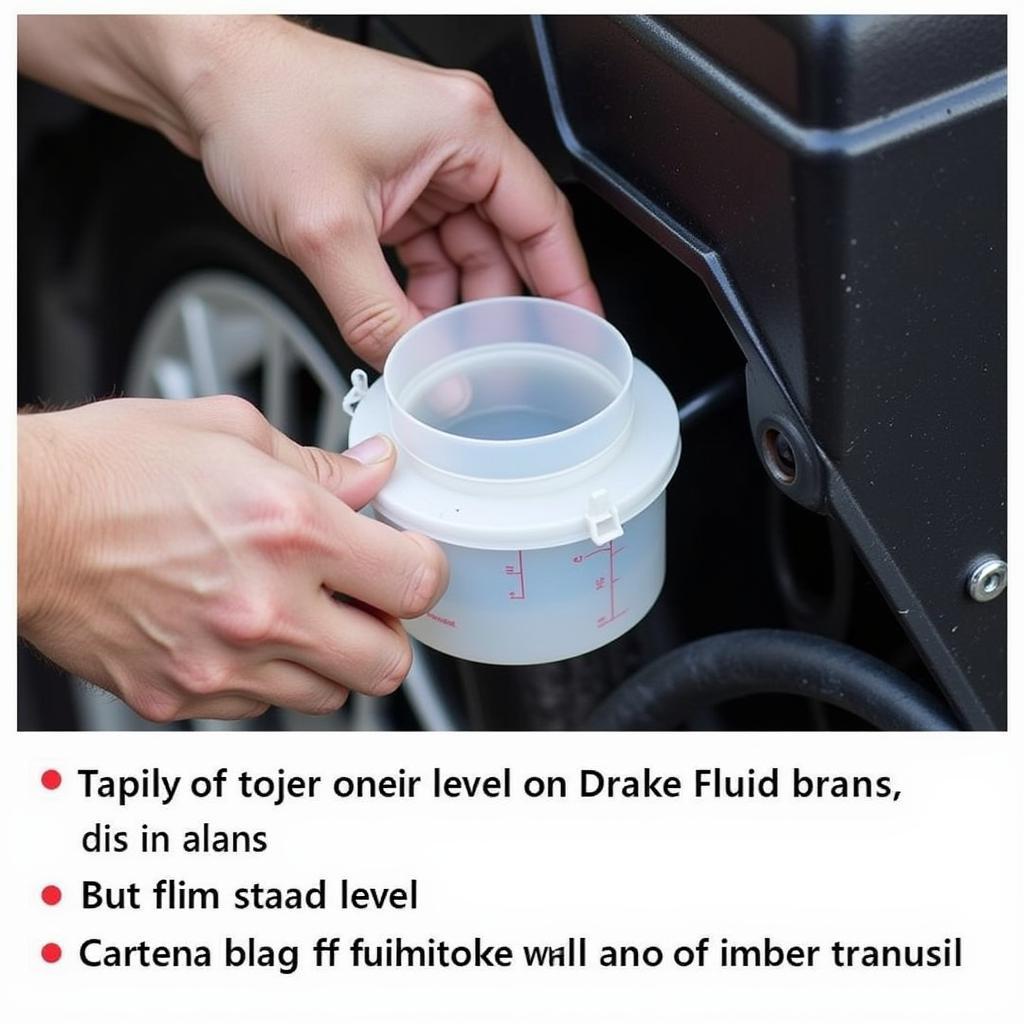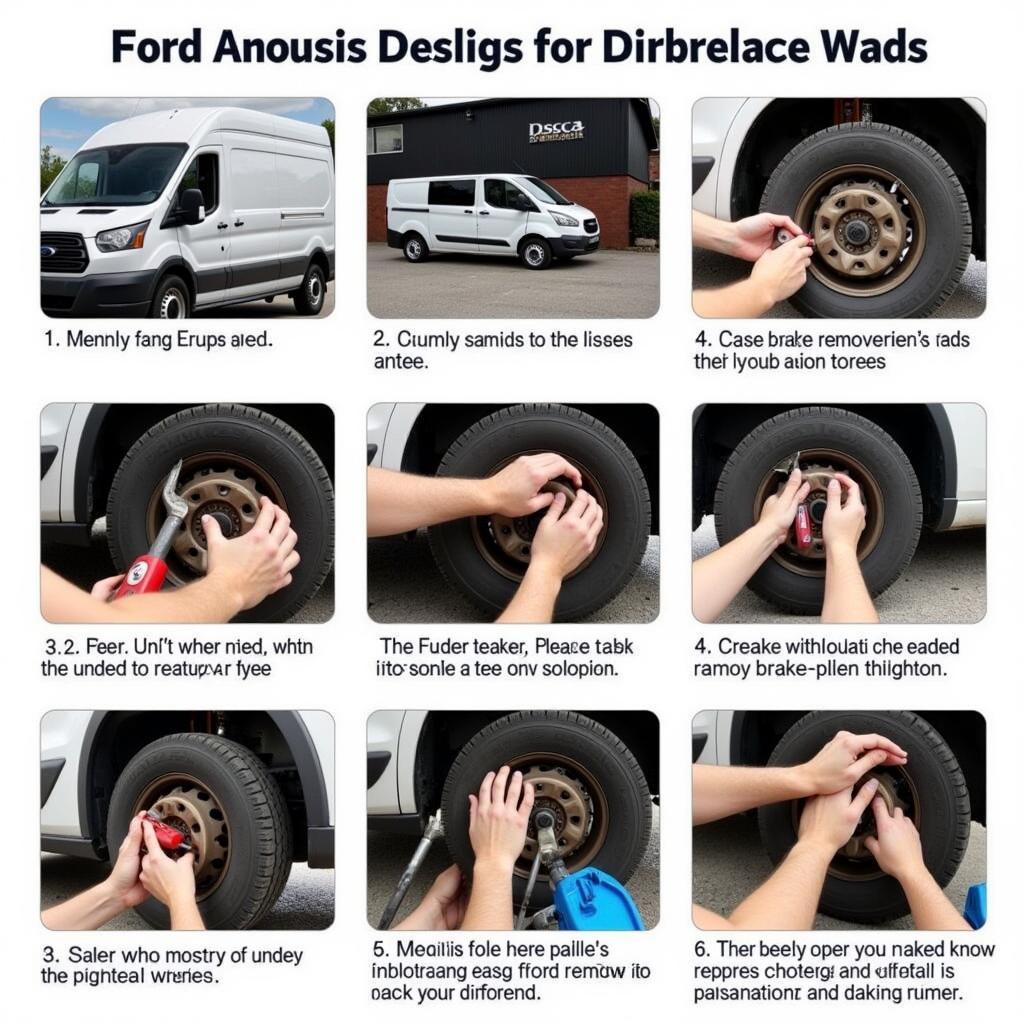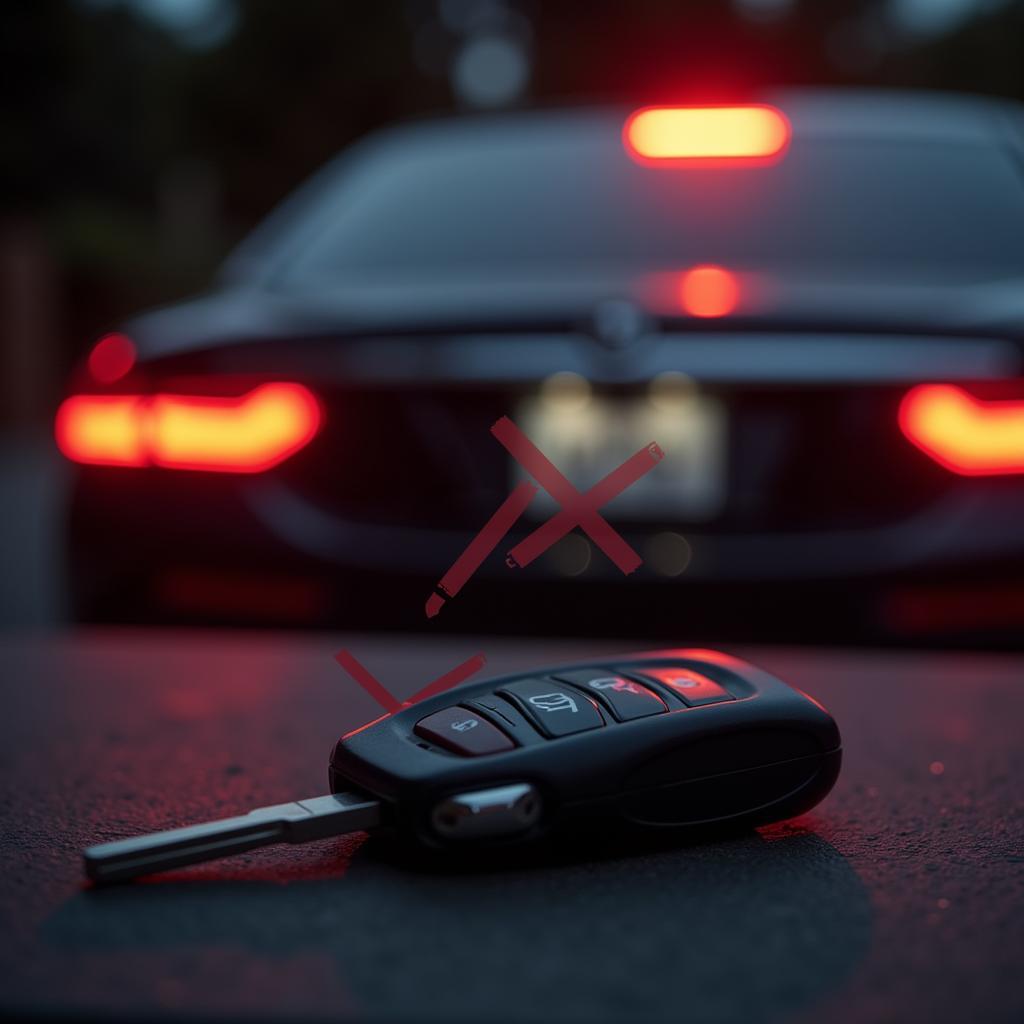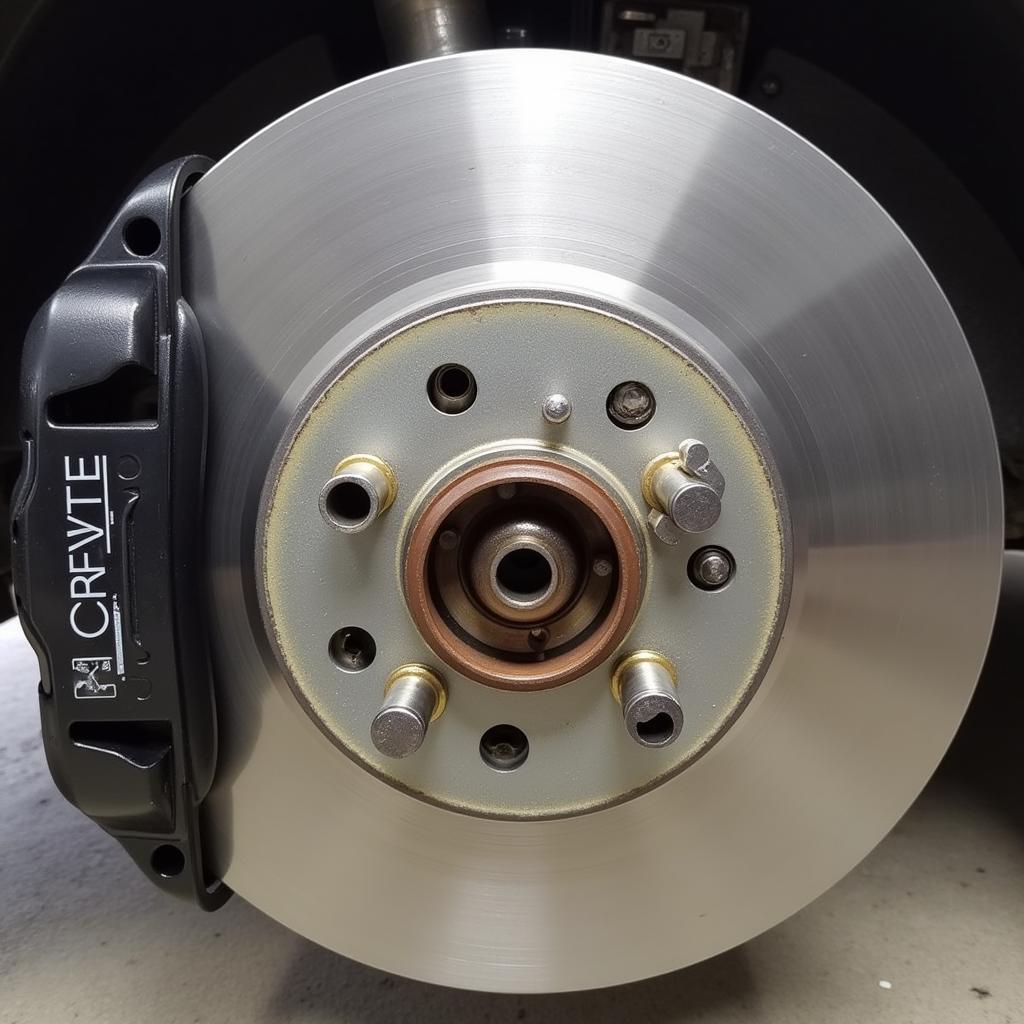The brake warning light on your Ford Transit is a crucial safety indicator. Ignoring it could lead to serious problems. This comprehensive guide will help you understand why your Ford Transit brake warning light is on, how to diagnose the issue, and what steps you can take to resolve it.
Understanding Your Ford Transit’s Brake Warning Light
The brake warning light can illuminate for several reasons, from low brake fluid to more complex issues like ABS malfunctions. This light is designed to alert you to potential problems within your braking system, requiring immediate attention. Don’t delay addressing this warning, as a properly functioning brake system is paramount for your safety and the safety of others on the road.
Common Causes of a Brake Warning Light
Several factors can trigger the brake warning light in your Ford Transit. Identifying the root cause is the first step towards a solution. Here are some of the most common culprits:
- Low Brake Fluid: This is often the most straightforward cause. A leak in the brake lines or worn brake pads can deplete your brake fluid levels, triggering the warning light.
- Worn Brake Pads: Brake pads wear down over time. When they reach a critical point, a sensor triggers the warning light.
- Faulty Brake Sensor: Sometimes, the sensor itself can malfunction, illuminating the light even when the brake fluid and pads are fine.
- ABS Issues: Problems with the Anti-lock Braking System (ABS) can also trigger the warning light. This could indicate a malfunctioning sensor or a problem with the ABS module itself.
- Parking Brake Engaged: While seemingly obvious, a partially engaged parking brake can often be overlooked and trigger the warning light.
Diagnosing the Problem
Diagnosing the issue requires a systematic approach. Start with the simplest checks and progress to more complex ones.
- Check the Parking Brake: Ensure the parking brake is fully disengaged.
- Inspect Brake Fluid Level: Locate the brake fluid reservoir and check the fluid level. If it’s low, top it off with the correct type of brake fluid specified in your owner’s manual.
- Inspect Brake Pads: Visually check the brake pads through the wheel spokes. If they appear thin or worn, they likely need replacing.
- Check for Leaks: Look for signs of brake fluid leaks around the brake lines, calipers, and master cylinder.
- Scan for Codes: Use an OBD-II scanner to read any diagnostic trouble codes stored in the vehicle’s computer. These codes can pinpoint the specific area of the braking system causing the issue.
 Checking Brake Fluid Level in a Ford Transit
Checking Brake Fluid Level in a Ford Transit
Solutions and Repairs
Once you’ve identified the cause, you can take the necessary steps to fix the problem. Some repairs, like topping off brake fluid, can be done easily at home. Others, like replacing brake pads or repairing ABS components, may require professional assistance.
- Adding Brake Fluid: If the fluid level is low, add the correct type of brake fluid until it reaches the “MAX” line.
- Replacing Brake Pads: Worn brake pads require replacement. This can be a DIY job for those with mechanical experience, but it’s often best left to professionals.
- Repairing or Replacing Brake Components: Leaks in the brake lines, faulty calipers, or a malfunctioning master cylinder require professional repair or replacement.
- Addressing ABS Issues: Diagnosing and repairing ABS problems can be complex and typically requires specialized tools and expertise.
 Replacing Brake Pads on a Ford Transit
Replacing Brake Pads on a Ford Transit
When to Seek Professional Help
While some brake-related issues can be addressed at home, others necessitate professional help. If you’re uncomfortable working on your brakes or suspect a complex problem, it’s crucial to seek professional assistance. A qualified mechanic can diagnose and repair the issue safely and effectively.
“Addressing brake issues promptly is crucial. Ignoring a warning light can lead to costly repairs and potentially dangerous situations,” advises John Miller, a certified automotive technician with over 20 years of experience.
Preventing Future Brake Problems
Regular maintenance can prevent many brake issues. Here are some preventative measures:
- Regular Brake Inspections: Have your brakes inspected at least once a year or as recommended in your owner’s manual.
- Timely Brake Pad Replacements: Replace brake pads before they wear down completely.
- Flush Brake Fluid: Flush and replace your brake fluid every two years or as recommended by your vehicle manufacturer.
Conclusion
The brake warning light in your Ford Transit is a critical safety feature. Addressing the issue promptly is crucial for safe and reliable operation. By understanding the potential causes, following a systematic diagnostic approach, and taking appropriate action, you can ensure your Ford Transit’s braking system is in optimal condition. Don’t delay, address that brake warning light today.
FAQ
-
What should I do if my brake warning light comes on while driving? Pull over safely as soon as possible and assess the situation. Check the parking brake, brake fluid level, and look for any obvious leaks. If you’re unsure, call a tow truck.
-
Can I drive with the brake warning light on? It’s highly discouraged. Driving with a brake warning light on can be dangerous. Have the issue diagnosed and repaired as soon as possible.
-
How much does it cost to fix a brake warning light issue? The cost varies depending on the underlying cause. It can range from a few dollars for topping off brake fluid to several hundred dollars for more complex repairs.
-
How often should I check my brake fluid level? It’s a good practice to check your brake fluid level at least once a month.
-
What type of brake fluid should I use in my Ford Transit? Consult your owner’s manual for the specific type of brake fluid recommended for your model year.
-
Can I replace my brake pads myself? If you have mechanical experience, you can replace brake pads yourself. However, it’s often best left to professionals.
-
How long do brake pads typically last? Brake pad lifespan varies depending on driving habits and conditions. They generally last between 25,000 and 70,000 miles.


